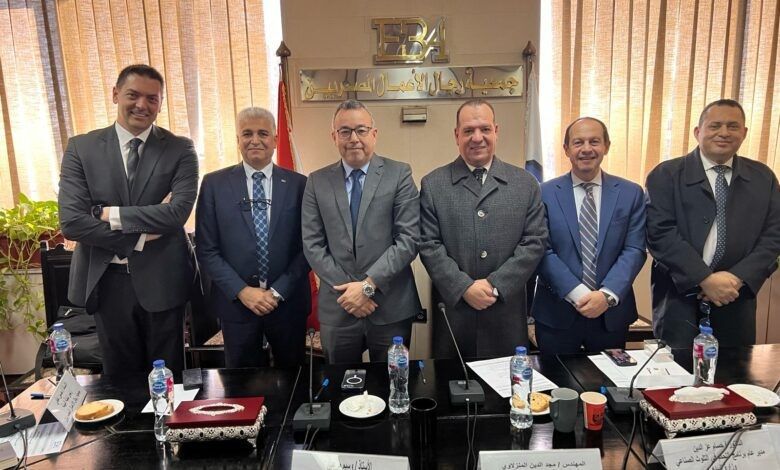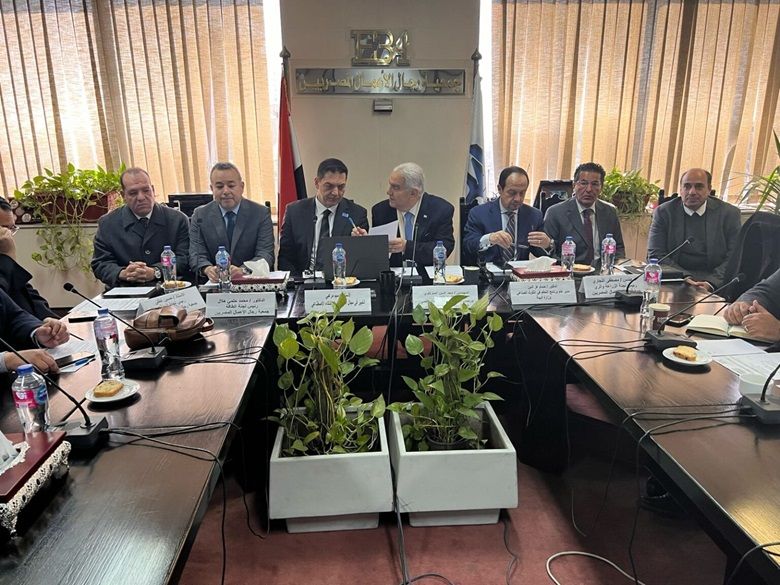CAIRO, Feb 15, 2024 – (ACN Newswire) – The Egyptian Businessmen’s Association (EBA) convened a symposium on February 9, chaired by Engineer Majd al-Din al-Manzalawi, Secretary-General and Chairman of the Association’s Industry and Scientific Research Committee, to address the challenges and opportunities presented by the Carbon Border Adjustment Mechanism (CBAM), a law governing manufacturing standards for Egyptian exporters.

The symposium invited Mr Wassim Merheby, CEO of Verofax and a technology and AI (artificial intelligence) expert, along with Dr. Hossam Ezz al-Din, Director General of the Industrial Pollution Control Program at the Ministry of Environment, and several heads of specialized committees, to focus on the urgent need for Egyptian exports to align with the green economy principles outlined in the CBAM law.
The discussion emphasized the imperative for Egyptian exports to adhere to the green economy principles outlined in the CBAM law. Key topics included the integration of automated quality data, aggregated across supply chains to streamline compliance processes, access to finance opportunities with prominent European institutions, and enhancing industry performance to support a sustainable economy in Egypt.

Merheby highlighted the timeline for compliance, noting that registration for the new EU export regulations system would commence on January 1, 2025, with full implementation scheduled for January 2026. Merheby urged Egyptian factories to adapt promptly to the new international legislation, to avoid export bans and hefty tariffs of up to 35%.
The symposium underscored the importance of automating the processes in exporting factories to efficiently meet carbon footprint standards, thereby enabling Egyptian exporters to provide high-quality and validated data. This automation is made possible through Verofax’s comprehensive Lifecycle Assessment Solution, which integrates over 130 systems, ensuring seamless verification of recycled goods, emission reductions, and quality data aggregation for exports to the EU.
Hossam Ezz El-Din, Director General of the Industrial Pollution Reduction Program at the Ministry of Environment, outlined the program’s objective to incentivize industries to adopt environmentally compliant and sustainable practices through finance packages of loans and grants, funded by the European Union.
El-Din elaborated on available financing programs, detailing two types of program: loans, and grants. The Central Bank of Egypt has directed these programs to local banks, including the Ibad program, valued at 135 million euros and expected to conclude by the end of the year. Additionally, a new program named Green, valued at 268 million euros, will commence in 2025, offering a grace period of one to two years and repayment over 5 years. This program also allows borrowing in foreign currency and repayment in Egyptian pounds.
The symposium concluded with a call for continued collaboration among government bodies, financing institutions, and industries to facilitate smooth transition towards environmentally compliant production practices, thereby ensuring Egypt’s competitiveness in international markets.
YouTube: https://youtu.be/i88vJzpjPsM

